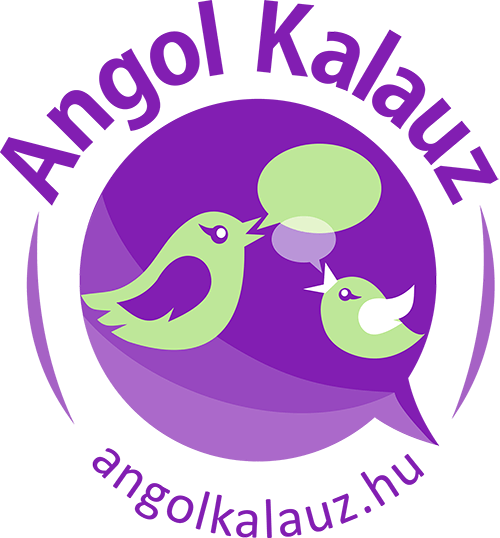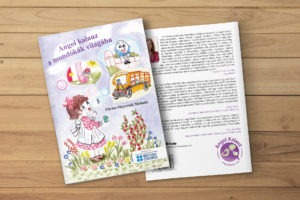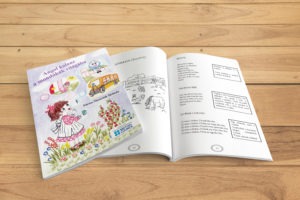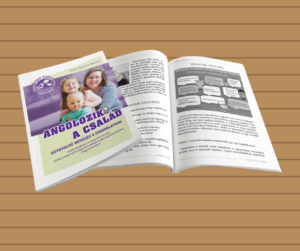Talk Nua – Egy blog a szülő-gyermek kommunikációról és kétnyelvűségről
Bemutattam már nektek több alkalommal is a Kétnyelvűség kategória alatt külföldi blogokat, akik ezzel a témával foglalkoznak. Ebben a bejegyzésben szeretném nektek bemutatni Mary Pat-et, aki beszéd és nyelvterápiás előadó, kutató, író, egy 5 és fél éves kislány anyukája és imád mindent, ami a gyerekekkel való kommunikációval kapcsolatos.
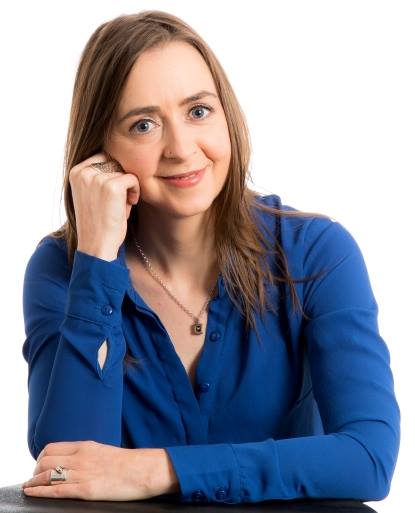
- Please, tell me about yourself in some sentences.
- Hi, I’m Mary-Pat, creator of Talk Nua; a blog about child-parent communication and bilingualism for parents. I live in Galway, Ireland’s most culturally diverse city on the West coast. I’m a lecturer in speech & language therapy, a researcher, author, and lover of any thing to do with communicating with children! I have a daughter who is 5 & ½ years old.
- What languages do and your husband speak? How do you learn these languages and what level do you speak them?
- So English is our first language. I speak conversational Irish and Spanish. I learned Irish at school and Spanish from a Mexican teacher before spending 3 months in South America. I can understand and speak basic French. We love languages in our house- my husband is currenlty learning Polish and teaching Japanese kanji to our daughter.
- How old is your child? Could you say some info about her?
- My little girl is 5 and ½ and full of fun and mischief! She goes to an Irish language school and doesn’t speak Irish at home!
- What is the main language that you speak at home?
- Our main language is English with Irish thrown into the mix occasionally- I keep meaning to speak it more & not only for issuing instructions!
- Why did you start raising your children bilingually?
- Great question- manily because I love languages and metalinguistic awareness in particular. So from quite a young age- under 2, we wathced Peppa in French and had 1st word books in Irish, Spanish, and French to explore together.
- How do you manage the languages?
- Very casually and naturally really. I do make a conscious effort to include more Irish when I think of it.
- What are the main points of raising a bilingual child?
- It’s really important to communicate with your baby in the langauge that feels most natural to you; I could only do baby talk and the language of soothing and connecting in English-anything else felt unnatural to me. Also, it’s really important to talk to your baby and toddler about everything that’s going on around them; a bit like as if you were a tour guide! And reduce questions like ’What’s that?’- these aren’t communicative questions as you already know the answer; they are testing what the child knows. So it’s better to just describe what is happening and keep questions to a minumum. Reading books together is a fantastic way to build language and communication skills.
- Have you got any bad moments, feelings when your environment or relatives reprove your bilingual raising?
- Yes, my parents were a little concerned about our choice to send her to an Irish language pre-school and school but once I explained how good it would be for her, then they relaxed about it.
- What was your first success? Have you got any memorable moments?
- Just after she was born and I held her and said „Hello”. Her eyes widened and she turned to look at me; ’Wow,’ I thought, that is her hearing my voice on the outside for the first time. How talkative she was and still is! I remember at 4 months or so, showing her some flashcards and seeing how her eyes followed them when I moved them and how attentive she was as I talked about them. I have lovely memories of her babbling non-stop and the cutest videos where we were looking at pictures together when she was 2 I think and although I spoke in English, she named everything in French. Also seeing her reading in Irish without much input in Irish reading at home- they really designed to acquire languages!
- How do you see your child’s development in languages? Did she mix the languages? Most parents think that mixing the languages means bad, what do you think about this? Is it normal for children to mix languages?
- It’s totally normal to mix and chidlren generally mix to the degree to which they hear mixing around them. They also learn very quickly where it’s acceptable to mix languages and where it’s not. My little girl doesn’t mix that much because Irish is very much associated with the context of education/school. I have a blog post about that here http://talknua.com/all-mixed-up-language-mixing-and-switching-in-young-bilingual-children/
- Have you got any difficulties (e.g. your child refuse the language), what was it and how do you solve this?
- I believe you can only control your own input. So you can speak your language but you can’t make them respond in the language you want. I have a free e-book called 25 Ways to Make them Love your Language for parents. It has lots of ideas on how to provide high quality opportunites for growing the minority language. If you email marypat@talknua.com I’ll send you a copy.
- What is a normal development of bilingual children? Do you think bilingualism causes a delay in children?
- Being bilingual does not cause even a temporary delay in language development and there are more bilingual people in the world than monolingual people. There is a lot of variation in young children’s lanaguage development but generally 1st words appear between 8-18 months and the average vocabulary of an 18 month old is approximately 50 words across the languages. I wrote another post about this for Multilingual Parenting and you can find it here http://multilingualparenting.com/2016/01/27/early-bilingual-language-development-facts-and-fictions-guest-post/
- What was the main aim to start writing a blog? When do you start? What can we find on your blog?
- I wanted to give parents practical tips for enhancing communication with their children and reassure them about any concerns they had about raising their children bilingually. I’ve been blogging since May 2015 and post every 2 weeks at talknua.com
- How can your blog help parents?
- It has lots of pracitcal tips for communicating with your child and for language learning too. I have a page on bilingualism and people can email me questions about their specific issues and I will write a post just for them. I like to keep things short, sweet, highly practical, and based on good quality research.
- Could you recommend some fun activities, ideas that parents can play with their child for speech development?
- You can’t beat undivided attention and time playing with your child for speech and language development. It’s important to follow what they are interested in rather than trying to ’teach’ them something.
- Singing with your baby is also great- just make sure it’s nice and slow and when they know the song, that you pause at the end of a line and wait for them to take a turn; it doesn’t matter what they say as long as they take a turn.
- Reading story books is a great way to build language- I have a video on my Youtube channel with more specific advice: https://www.youtube.com/channel/UCg4i1NDZpW9_TYTYuTWVfAQ
- What do you recommend the parents who are hesitating and don’t know how to start?
- Just talk to your baby about what is going on around them in the language that feels most natural to you, for example, if they’re banging the spoon on the table, you can say: ’That’s the spoon. You’re banging the spoon on the table’ and wait for them to take a turn.
- Don’t try to get them to perform by saying things like ’Say dog’ for example.
- If they say the word ’wrong’, then you just repeat it after them naturally, with no exaggerated intonation or volume.
- Read, read, read, with them.
Mary Pat blogját itt találod (kattints a képre):
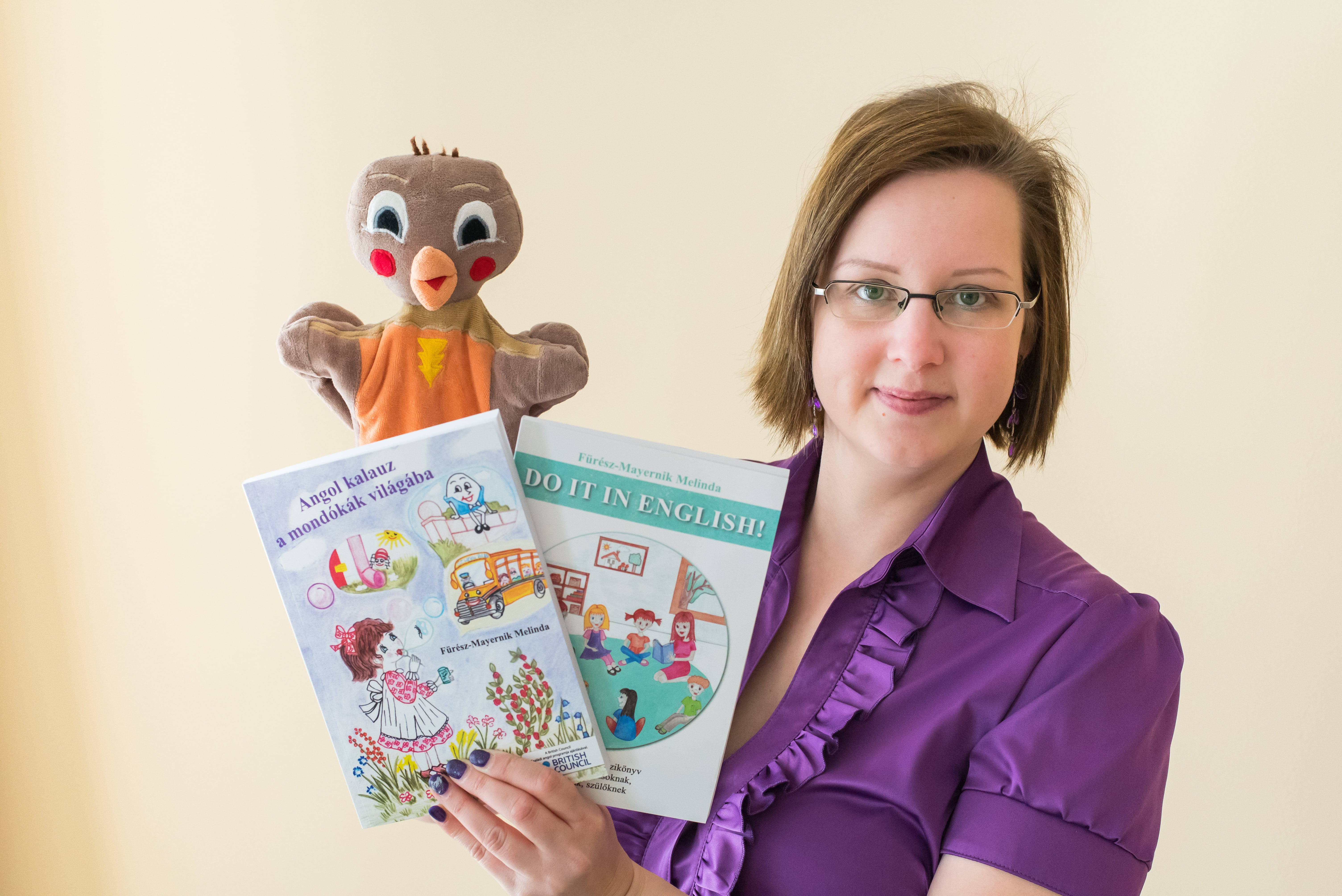
Fürész-Mayernik Melinda
Angol Kalauz program alapítója
Keresd a játékos angolozáshoz, kétnyelvű neveléshez kapcsolódó napi tippeket a Facebook oldalon is:
Angolozik a család – Kétnyelvű nevelés a gyakorlatban
Szülői kézikönyv a kétnyelvű nevelés, játékos angol nyelvi fejlesztés gyakorlati megvalósításához Magyarországon
Legyen az otthoni angolozás, kétnyelvű nevelés élmény, közös családi program, mellyel hatalmas lehetőséget adsz gyermekednek, hogy az angol nyelvet szívesen és jól beszélje!
